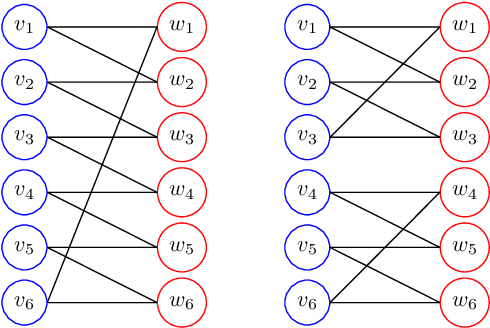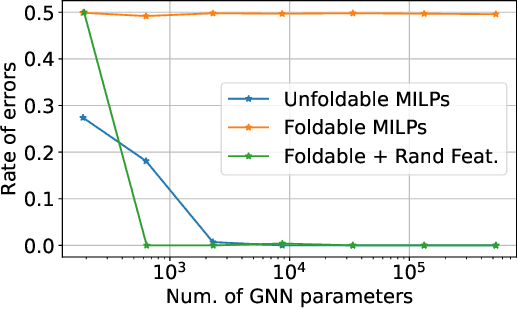On Representing Mixed-Integer Linear Programs by Graph Neural Networks
Paper and Code
Oct 19, 2022


While Mixed-integer linear programming (MILP) is NP-hard in general, practical MILP has received roughly 100--fold speedup in the past twenty years. Still, many classes of MILPs quickly become unsolvable as their sizes increase, motivating researchers to seek new acceleration techniques for MILPs. With deep learning, they have obtained strong empirical results, and many results were obtained by applying graph neural networks (GNNs) to making decisions in various stages of MILP solution processes. This work discovers a fundamental limitation: there exist feasible and infeasible MILPs that all GNNs will, however, treat equally, indicating GNN's lacking power to express general MILPs. Then, we show that, by restricting the MILPs to unfoldable ones or by adding random features, there exist GNNs that can reliably predict MILP feasibility, optimal objective values, and optimal solutions up to prescribed precision. We conducted small-scale numerical experiments to validate our theoretical findings.
 Add to Chrome
Add to Chrome Add to Firefox
Add to Firefox Add to Edge
Add to Edge